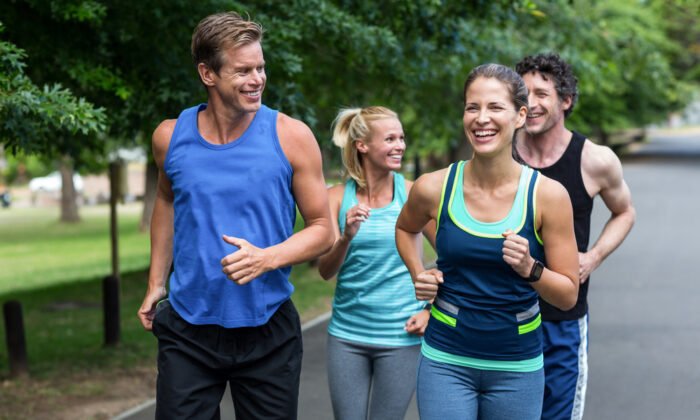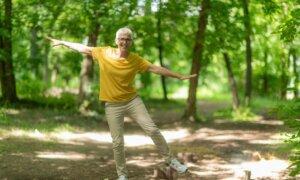Australian Study Finds Mental Wellbeing to be a Major Motivator for Exercise
The results are in as the Olympics approach.
Exercising for mental health and wellbeing has become the main motivating factor for Australians, with a study showing weight loss to no longer be the reason why Aussies are choosing to exercise.
In a study commissioned by sports giant ASICS, just over 1,000 Australians were asked about their motivations for exercise and whether this had shifted over the past five years.
Almost half of the respondents (40 percent) now prioritised mental health, compared to a focus on weight loss five years ago, when the majority said they were focused on weight loss; 23 percent said it was to improve fitness, while 18 percent said they wanted to improve their physical health, such as muscle, bone, and heart health.
The study, provided to The Epoch Times, was conducted between May 7 and 9, 2024, and was commissioned to gauge Australians’ motivations regarding exercise in the lead-up to the Paris 2024 Olympics.
Psychologist and ASICS ambassador Meg McClurg told The Epoch Times that the study’s results show that Aussies are “intrinsically motivated” to exercise more for the positive mental and physical benefits than the physical aesthetics.
“This research suggests that individuals are also becoming more aware of how to manage their mental health and are engaged in proactive, positive management strategies. Many have identified that exercise is an effective way to positively impact their mental health,” Ms. McClurg said.
“Engagement in exercise can make us feel a greater sense of wellbeing, a sense of belonging or community with those we engage with through exercise, and a greater sense of connection with others and ourselves.”
Interestingly, the study found that millennials were leading the trend.
The study also found two-thirds of Australians are inspired to exercise or try a new sport after watching a professional event.
“More than half have stayed with that sport more than six months, and more than a quarter stayed with it more than two years,” Ms. McClurg said.
“With the Olympics nearing, this suggests that Aussies are likely to feel inspired to exercise by watching and supporting our competing Olympians!”
Exercising for Mental Wellbeing
Ms. McClurg recommends choosing movements that are enjoyable and have low barriers (including time, money, and location) so that early on, some success can be experienced.
While it can be challenging to get started, she said engaging in the exercise alongside friends or family can maintain motivation and accountability.
“Once movement becomes more habitual, you may choose to set goals and challenge yourself beyond what you’re already engaged in, e.g., stepping up from a brisk walk to a slow jog,” Ms. McClurg said.
She said that “doing hard things” is beneficial for our mental well-being, but one person’s “hard thing” may look different from another.
“That’s okay,” she said. “It’s important to remember that when it comes to movement for mental wellbeing, there is no ‘right or wrong’ way to do it.”
As a guide, Australia’s Department of Health and Aged Care recommends 2.5 to 5 hours of moderate-intensity physical activity (such as a brisk walk, golf, mowing the lawn, or swimming) each week and at least two days of muscle-strengthening activities (such as push-ups and lifting weights).





